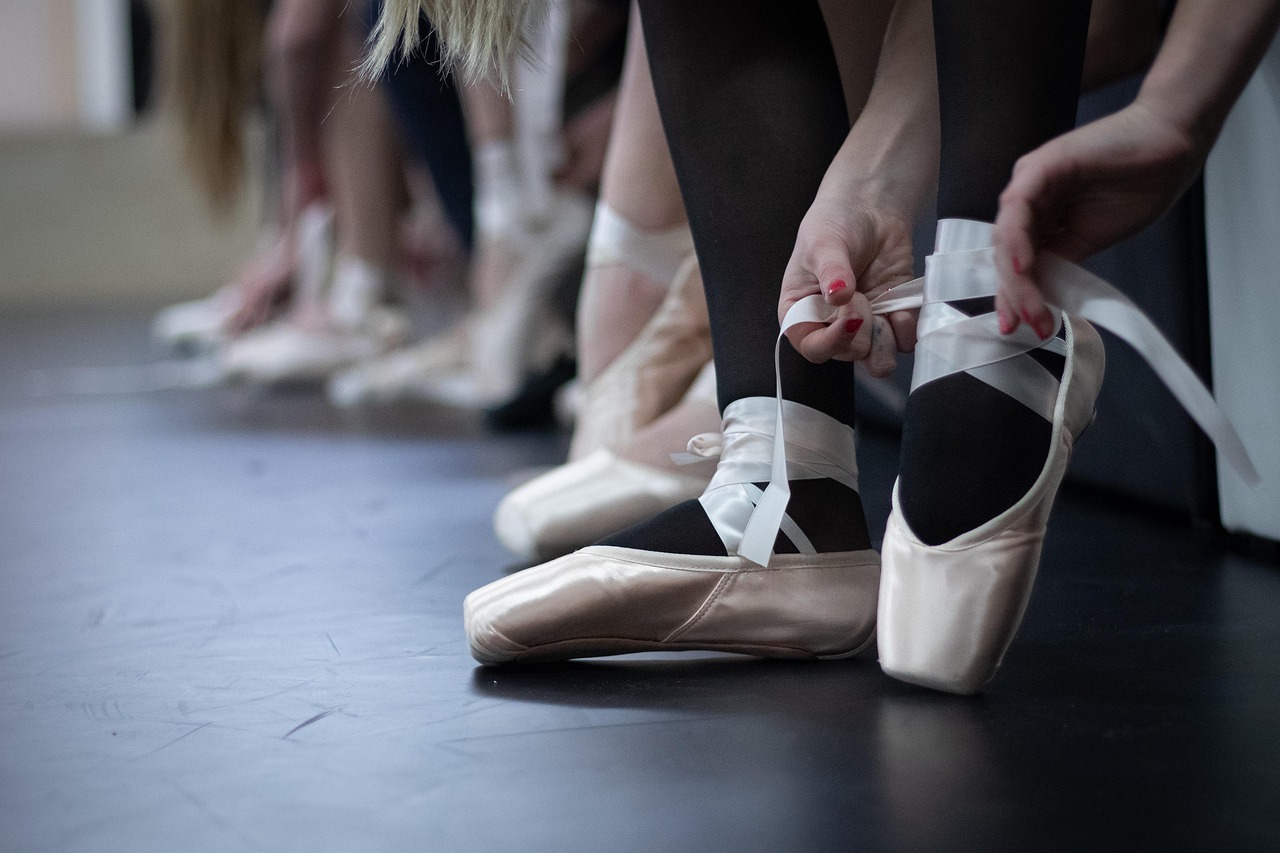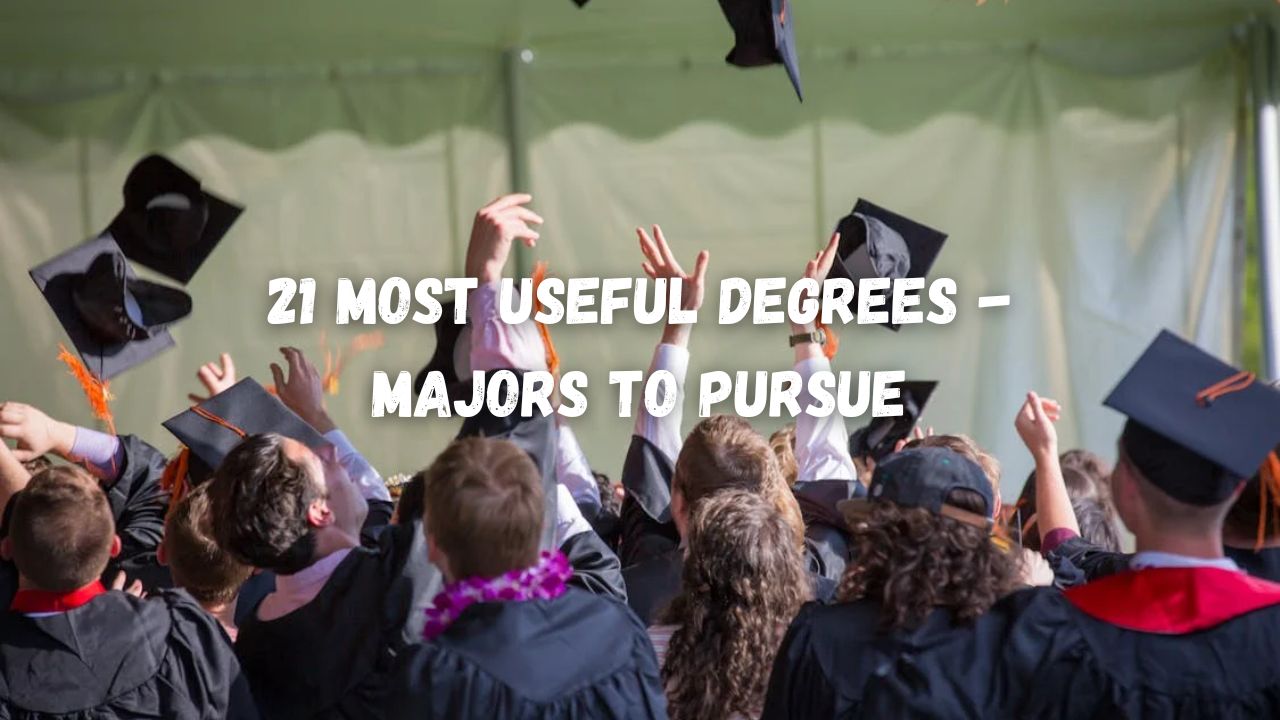Choosing a college degree can be a tough decision, especially with rising costs and student debt. While following your passion is important, not all degrees lead to good job prospects. Some degrees have gained a reputation for being less useful in the job market. In this post, we’ll look at some of the most useless degrees and discuss why they are least worth choosing.
Most Useless Degrees [Listing with Average Salary & Payback]
What are the most useless degrees that you’d better avoid? Here are the top 20 worst degrees to get in 2026 based on the average salary and payback period.
| No | Degree | Average Salary | Payback |
|---|---|---|---|
| 1. | Dance | $25,453 | 151.28 years |
| 2. | Education | $25,680 | 21.2 years |
| 3. | Drama/Theater | $27,468 | 41.40 years |
| 4. | Music | $29,592 | 22.15 years |
| 5. | Studio & Fine Arts | $30,119 | 17.96 years |
| 6. | Anthropology | $30,581 | 15.48 years |
| 7. | Photography | $30,810 | 21.04 years |
| 8. | Philosophy | $32,116 | 14.04 years |
| 9. | Travel and Tourism | $35,238 | 3-10 years |
| 10. | Psychology | $35,412 | 8.50 years |
| 11. | Biology | $36,175 | 8.13 years |
| 12. | Health/Medical Preparatory Programs | $36,939 | 8.83 years |
| 13. | Cultural Studies/Critical Theory and Analysis | $39,878 | 36.5 years |
| 14. | Criminal Justice | $40,070 | 5.39 years |
| 15. | English Language & Literature | $41,258 | 21.2 years |
| 16. | History | $43,659 | 13.1 years |
| 17. | Health Administrative Services | $44,480 | 10.4 years |
| 18. | Fashion Design | $44,746 | 14.6 years |
| 19. | Woodworking | $51,606 | 14.8 years |
| 20. | Entrepreneurship | $51,885 | 6.1 years |
Most Useless Degrees
1. Dance

Average Salary: $25,453
Payback: 151.28 years
A Dance major is often considered one of the most useless college degrees because, instead of formal education, many dancers actually discover opportunities through training, auditions, and networking. After graduating, you might find yourself with significant debt and uncertain career prospects, or you may end up earning less than your tuition. The dance industry is highly competitive, with many candidates vying for limited spots.
What to do instead:
- Skip college. Instead, focus on developing your skills, going to auditions to build your network, finding an agent, and gaining experience.
- You can also think of other majors that have better job opportunities as a backup plan. You can change careers as you get older and not rely solely on dancing as your main income.
2. Education

Average Salary: $25,680
Payback: 21.2 years
Education or teaching degrees, including English teaching, may not be worth it because starting salaries are often low. Many teaching jobs, especially overseas, are contract-based or part-time, which can lead to job instability for graduates. If you decide to major in education degrees and end up with a high-salary job, you will need to determine the specific educational field you want to get involved. You should bear in mind that a master’s degree, extra training or related work experience is a must to secure a well-paid and steady job.
What to do instead:
- For better job prospects, pursuing a degree in International Relations or International Business may be more advantageous.
3. Drama/Theater
Average Salary: $27,468
Payback: 41.40 years
Why Drama is taken as one of the most worthless degrees? Many drama schools don’t teach the techniques and skills needed in the movie and TV business. A Theater degree may not significantly impact your industry standing, and you might only find low-paying jobs in the field.
What to do instead:
- If you want to go to college, try a double major like Business and Theater.
- Taking drama electives and participating in community theater can help improve acting skills and increase exposure.
- Instead of attending college, you can choose to attend a professional acting course.
4. Music

Average Salary: $29,592
Payback: 22.15 years
Music degrees are one of the most useless, leading a tough path because finding a job after graduation isn’t easy. The job market is small, and many basic music jobs don’t pay well. Although it often can’t cover your expenses, Music-related jobs are great for extra cash.
What to do instead:
- Take a major with better job prospects, such as a general Liberal Arts degree, as a backup if music doesn’t pan out.
- Build a strong portfolio and work on your marketing skills.
- If you’re concerned about job opportunities, consider combining music with fields like business or technology.
5. Studio and Fine Arts

Average Salary: $30,119
Payback: 17.96 years
The job market for fine art and studio artists can be really tough. It’s crowded, and hard to find steady work. Many graduates end up in low-paying jobs or uncertain freelance work, which doesn’t provide good career prospects. As a result, Fine Arts degrees are often considered some of the most worthless college degrees.
What to do instead:
- Try to find apprenticeships with artists, curators, galleries, or nonprofit organizations. This hands-on experience can help you learn useful skills and make important connections.
- Think about majoring in Design and Applied Arts. This path gives a wider range of skills, making it easier to find jobs. Graduates usually earn around $38,895, which can provide more financial stability than a Studio Arts degree.
6. Anthropology
Average Salary: $30,581
Payback: 15.48 years
An anthropology bachelor’s degree is interesting and dives deep into cultures, but it can be hard to find specialized jobs without further education. Many of the better-paying jobs require a master’s or a PhD. In order not to make anthropology the least useful degree, students will have to spend much more time and money.
What to do instead:
- You can consider majoring in one of these related fields, like Sociology (Average Salary: $37,718), International/Global Studies (Average Salary: $39,317), Liberal Arts (Average Salary: $37,070)
7. Photography

Average Salary: $30,810
Payback: 21.04 years
Next on the list of useless university degrees is Photography. It’s hard to succeed as a photojournalist or a well-known fashion photographer. About 60% of photographers quit the industry within their first year. With cheap digital cameras, anyone can learn photography, so is it worth spending years on a photography degree?
What to do instead:
- Focus on developing your skills and building a strong portfolio. Consider becoming an apprentice to gain real experience.
- Work on promoting yourself, as many photographers find clients through Instagram and word of mouth.
- If you want a related degree, consider a more practical option like a Bachelor of Design and Applied Arts.
8. Philosophy
Average Salary: $32,116
Payback: 14.04 years
The study and use of science have outlasted the study and use of philosophy in the modern generation, making Philosophy one of the most useless university degrees. In contrast to philosophy, which often focuses on abstract concepts, the labor market is predominantly filled with science-related jobs that prioritize practical skills.
What to do instead:
- Consider pursuing more practical majors such as Medical Ethics and Bioethics (Average Salary: $48,915), Political Science (Average Salary: $43,353), and Liberal Arts (Average Salary: $37,070)
9. Travel and Tourism

Average Salary: $35,238
Payback: 3-10 years, depending on various factors.
While learning ways to improve the tourist experience, many Travel and Tourism graduates are unsure what to do afterward. After graduating, job prospects can be limited. A lot of students enter the business wanting to become Instagram travelers or professional vloggers, but end up in boring office jobs. These jobs, like many of the most pointless degrees, pay poorly, work unpredictable hours, and might experience bad treatment.
What to do instead:
- It’s better to major in Business Administration if you want more job options. This degree can open doors in various fields, including tourism. Employers often look for candidates with a mix of real-world experience and academic qualifications for managerial positions.
10. Psychology

Average Salary: $35,412
Payback: 8.50 years
Psychology is often regarded as one of the most worthless degrees, as a Bachelor of Psychology does not qualify you to be a psychologist. Most of the time, you need additional education beyond a bachelor’s degree to become a psychologist or therapist.
What to do instead:
- Determine your career goals before choosing a major, then pursue a more specialized degree.
11. Biology
Average Salary: $36,175
Payback: 8.13 years
A Biology degree might not give you the hands-on skills you need to find a good job right away. If you’re looking for a high-paying job, it is among the lowest incomes in STEM fields, 23% less than the average for all degrees, right next to zoology and botany.
What to do instead:
- Consider pursuing a specialized biology-related degree, such as Human Biology (Average Salary: $40,211), Soil Science (Average Salary: $48,043), Biotechnology (Average Salary: $46,436), Biomathematics and Computational Biology (Average Salary: $58,584), or Biomedical Engineering (Average Salary: $68,734).
12. Health/Medical Preparatory Programs

Average Salary: $36,939
Payback: 8.83 years
Health/Medical Preparatory Programs, one of the dumbest degrees, teach the basics and skills needed for careers like medicine, nursing, pharmacy, or dentistry. However, many entry-level healthcare jobs don’t require a specific degree in this area, and the program may not lead directly to high-paying jobs. In many cases, practical experience or certifications can be more valuable.
What to do instead:
- If you decide not to attend medical school, you can take related degree with more practical training like Allied Health Diagnostic and Treatment Professions (Average Salary: $56,551), Clinical/Medical Laboratory Science/Research (Average Salary: $59,172), or Nursing (Average Salary: $72,513).
13. Cultural Studies/Critical Theory and Analysis

Average Salary: $39,878
Payback: 36.5 years
Cultural Studies, or Critical Theory and Analysis, may not provide the specific skills some jobs require, making graduates less competitive. Additionally, jobs in this field typically pay less than those in business or STEM, which can be challenging for recent grads. So, people always vote for the most useless degrees. Many positions that require strong analytical skills, such as teaching or research, often necessitate extra degrees or certifications, so you might end up spending more time and money on your education.
What to do instead:
- Find fields related to cultural studies that offer better job prospects, such as Sociology, Communications, or Marketing.
14. Criminal Justice
Average Salary: $40,070
Payback: 5.39 years
Expectations and reality often differ. Police or correctional officer positions typically do not require a degree. Moreover, careers in federal agencies or law can also be pursued without a Criminal Justice degree, making it one of the most useless college majors for those seeking immediate employment in these fields.
What to do instead:
- A bachelor’s degree in Homeland Security (Average Salary: $49,932) can help you get a job with the Department of Homeland Security (DHS) or similar organizations.
- For better pay, choose one of the degrees or majors below:
a.Public Policy Analysis (Average Salary: $48,872)
b.Public Administration (Average Salary: $47,783)
c.Political Science and Government (Average Salary: $43,353)
15. English Language & Literature

Average Salary: $41,258
Payback: 21.2 years
Many jobs that need strong writing or analytical skills, like teaching or publishing, often require additional degrees. This means English Language and Literature graduates might have to spend more time and money to get those qualifications. Because of this, it can be hard for them to find good-paying or stable jobs right after graduation.
What to do instead:
- If you want to be a writer or another non-teaching profession, instead of majoring in English, try pursuing a Creative Writing or Communications degree.
16. History
Average Salary: $43,659
Payback: 13.1 years
History degrees are regarded as useless college degrees because of their limited career options, primarily as professional historians or teachers, with many jobs also available to other liberal arts graduates. Aspiring historians need a master’s degree, and although the average annual wage is $63,940, job growth is minimal, with only 100 new positions projected by 2031 in a field that currently employs about 3,300 people.
What to do instead:
- If you’re interested in majors related to History but want improved job prospects or employability, consider Political Science or Archaeology.
17. Health Administrative Services
Average Salary: $44,480
Payback: 10.4 years
While a degree in Health Administrative Services can provide useful knowledge, it’s still not easy for students to secure a job. Many students may find better job prospects and earning potential in other areas of healthcare or through alternative educational paths.
What to do instead:
- There are other pathways to enter healthcare administration, such as certifications or associate degrees, which may provide a quicker and less expensive route to employment.
18. Fashion Design
Average Salary: $44,746
Payback: 14.6 years
In the fashion business, you don’t need a college degree. Finding a job with a big fashion brand right after college can be tough, and starting your own brand from scratch is even harder. Successful individuals typically have years of experience, strong relationships within the industry, and a solid understanding of how to build their brand.
What to do instead:
- Learn how to use technology, like computer-aided design (CAD), because it will give you the best chance of landing higher-paying jobs in the fashion business.
- You are also more likely to get promoted if you have other skills that go well with fashion design skills.
19. Woodworking

Average Salary: $51,606
Payback: 14.8 years
Woodworking is a skill that people can learn through hands-on experience rather than formal education. Many clients look for a strong portfolio and proven skills rather than a formal degree.
What to do instead:
- If you’re considering a career in Woodworking, it’s a good idea to research local markets to get a better idea of potential earnings in your area.
- Consider attending workshops, apprenticeships, or learning from experienced craftsmen.
20. Entrepreneurship
Average Salary: $51,885
Payback: 6.1 years
The degree in Entrepreneurship on its own is one of the most useless. It leaves the students questioning where to go next. Many successful entrepreneurs learn by doing. Starting a business or working in a startup can provide valuable hands-on experience that a degree can’t replicate.
What to do instead:
- In the business world, there’s always a need for automation, so having a degree in Computer Science can be very useful.
- There are online courses, books, and mentorship programs that can teach you the skills needed to start and run a business without a formal degree.
- Engaging with local business communities or attending events can offer valuable connections and insights that a degree program might not provide.
Maximize the Value of Your Degrees
Ultimately, discussing the 20 most useless degrees underscores a significant concern for many graduates. While these degrees can be fulfilling and inspire creativity, they can also lead to wasted time and money, difficult job searches, unclear career paths, limited opportunities, and lower salaries. You may entry a normal university, but chose the most useful degrees, which is more important to develop needed skills for future job market. It’s important to follow your interests, but being strategic and aware of potential debt is equally important. Additionally, finding a comfortable place to live during your studies is also important, and for that, uhomes.com can provide valuable assistance.
FAQs about Most Worthless Degrees
What are the top 10 useless degrees?
The top 10 useless degrees are:
- Dance
- Teaching English as a Second or Foreign Language
- Theatre
- Music
- Studio/Fine Art
- Anthropology
- Photography
- Philosophy
- Travel and Tourism
- Psychology
What can graduates do with these most useless college degrees?
Graduates can pursue a variety of career paths, often in unrelated fields, or they need to continue their education in more specialized areas. Networking and gaining practical experience can also open doors for better-paid jobs.
What is the least respected degree?
Degrees in drama/theatre, music, fine arts, and religious studies are often recogonized as the least respected degrees due to their lower starting salaries and limited career prospects. However, the term “least respected” is quite subjective, and the real condition can vary depending on the individuals and industries.
What is the most unemployed degree?
Anthropology is the most unemployed degree, with the highest unemployment rate at 9.4%. Physics, computer engineering, history, philosophy, religious studies, and fine arts are ranked right behind.
What is the lowest-paying degree?
Education, performing arts, and photography are known as the lowest-paying degrees. Education graduates get low mid-career salaries ranging from $48,000 to $53,000. Performing arts $64,000. And Photography $30984 a year.








